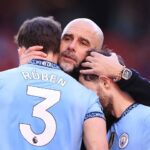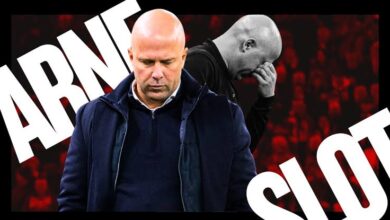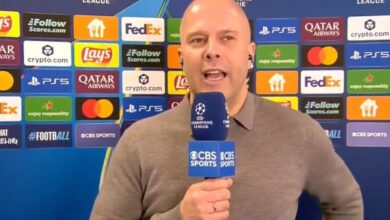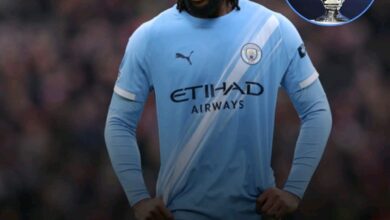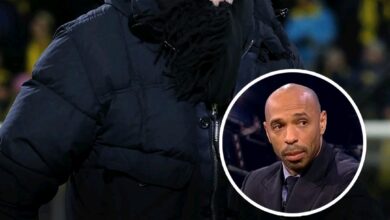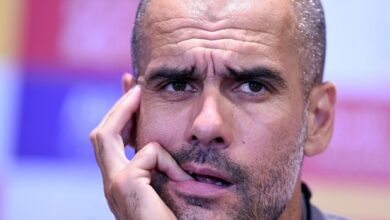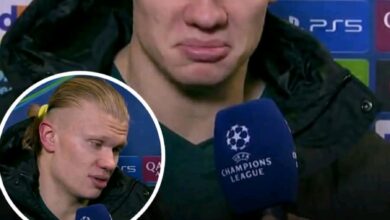Fabrizio Romano confirmed player who want to join man city before have signed for another club
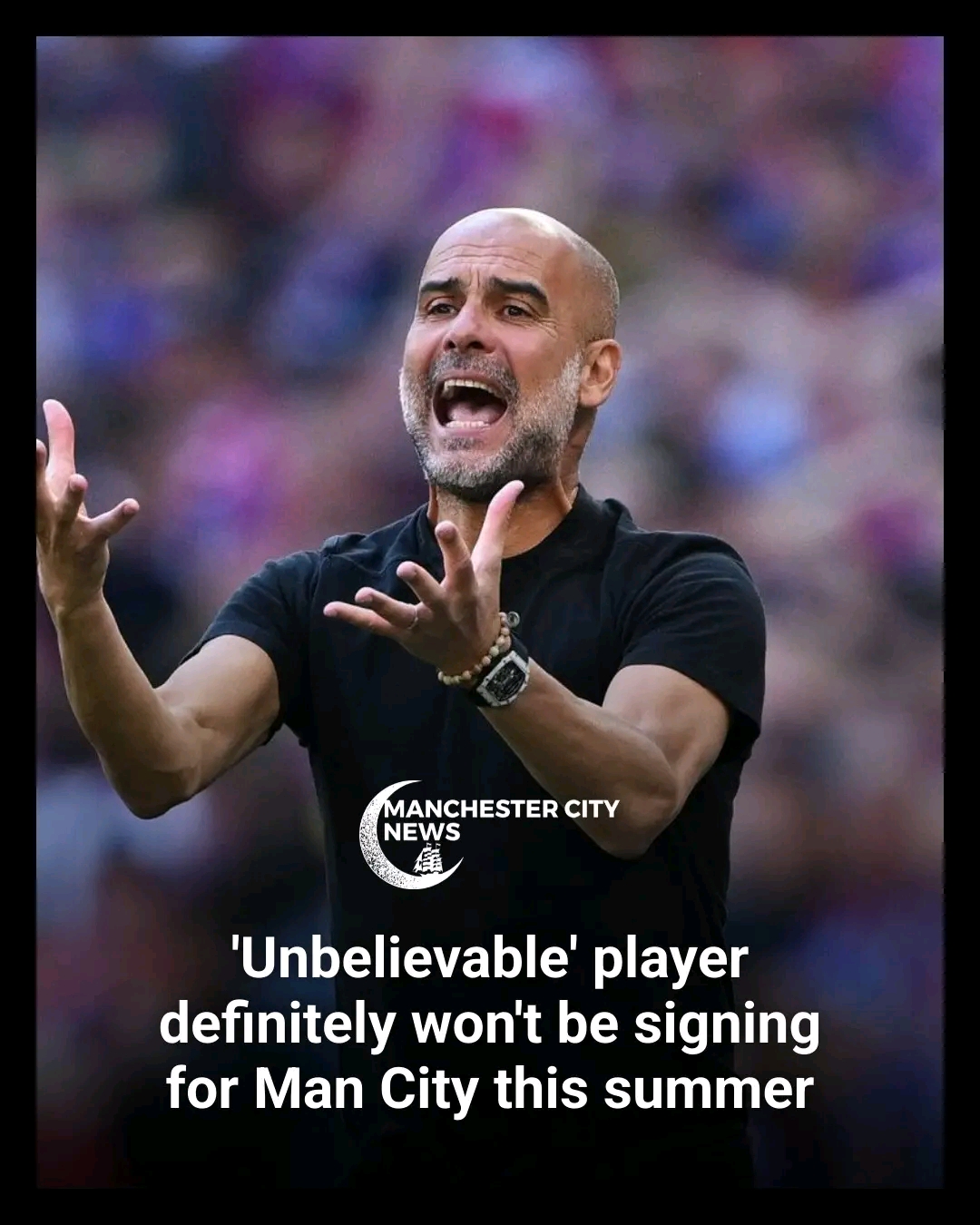
The summer transfer window of 2025 has proven to be one of the most complex and challenging periods for Manchester City in recent memory. As the Citizens navigate through a labyrinth of regulatory constraints, player availability issues, and strategic decisions, the club finds itself at a crossroads that could significantly impact their competitive prospects for the upcoming season.
Manchester City currently faces a pressing issue that has become increasingly problematic in modern football: the homegrown player quota. With exactly 17 non-homegrown players on their roster, the maximum permitted under Premier League and Champions League regulations, the club has reached a critical juncture. This numerical ceiling creates a domino effect that influences every potential signing and departure decision.
The homegrown player rule, initially implemented to encourage the development of local talent and maintain the competitive balance within English football, has become a strategic puzzle for clubs like Manchester City. The rule requires that at least eight of the 25 players in a squad must be homegrown, meaning they spent at least three years in the English football system before their 21st birthday.
For City, this constraint means that any new non-homegrown signing must be accompanied by the departure of an existing non-homegrown player. This creates a complex balancing act where the club must weigh the value of incoming talent against the potential loss of established squad members who have contributed to the team’s success over recent seasons.
The situation becomes even more intricate when considering that many of City’s most valuable assets fall into the non-homegrown category. Players like Erling Haaland, Kevin De Bruyne, Rodri, and Bernardo Silva are all classified as non-homegrown, making any potential departures not just numerical adjustments but significant losses in terms of on-field capability and experience.
One of the most significant developments in City’s transfer plans revolves around their Brazilian goalkeeper Ederson Moraes. Reports suggest that Turkish giants Galatasaray have emerged as serious contenders for his signature, a move that would represent a seismic shift for Manchester City’s goalkeeping department.
Ederson has been instrumental in City’s success since his arrival from Benfica in 2017. His unique combination of shot-stopping ability and exceptional distribution skills has revolutionized the goalkeeper position under Pep Guardiola’s tactical system. The Brazilian’s ability to initiate attacks with precise long-range passes and his comfort with the ball at his feet have made him an integral part of City’s playing philosophy.
However, the potential departure of Ederson has prompted City to identify a replacement, and their attention has turned to James Trafford of Burnley. The young English goalkeeper represents not only a potential solution to the goalkeeping position but also an opportunity to address the homegrown player quota simultaneously.
Trafford’s journey through English football has been marked by steady progression and impressive performances. His time at Burnley has showcased his shot-stopping abilities and his potential to adapt to a higher level of football. The 25-year-old goalkeeper possesses the physical attributes and technical skills that align with Guardiola’s requirements for the position.
The transition from Ederson to Trafford would represent more than just a change in personnel; it would signify a philosophical shift towards developing English talent while maintaining competitive standards. However, such a transition is not without risks, as replacing a goalkeeper of Ederson’s caliber and experience requires careful consideration of the potential impact on team performance.
Perhaps no position has caused Manchester City more transfer headaches this summer than the right-back slot. With Kyle Walker entering the twilight of his career and questions surrounding his long-term future at the club, finding a suitable successor or complement has become a priority that has proven surprisingly difficult to resolve.
The search for a right-back has exposed the complexities of modern football transfers, where multiple factors beyond pure talent evaluation come into play. City’s interest in various candidates has been met with obstacles ranging from club reluctance to sell to personal preferences of the players themselves.
Newce United’s Tino Livramento emerged as a primary target for Manchester City early in the transfer window. The young English defender’s pace, attacking instincts, and defensive solidity made him an attractive proposition for Guardiola’s system. Livramento’s ability to contribute in both phases of the game aligns perfectly with the demands of playing as a full-back in City’s tactical setup.
However, Newcastle United’s firm stance against selling one of their most promising assets has effectively ended City’s pursuit. The Magpies’ refusal to entertain offers for Livramento reflects the growing trend of Premier League clubs being reluctant to strengthen direct competitors, regardless of the financial incentives involved.
Newcastle’s decision to retain Livramento also highlights the increasing difficulty of conducting business within the Premier League ecosystem. As clubs become more financially stable and competitive, the traditional approach of using financial superiority to acquire desired targets becomes less effective.
Another target that has slipped through City’s fingers is Wesley Franca, who is set to join AS Roma instead. The Brazilian defender had been on City’s radar for an extended period, with the club’s scouting network identifying him as a potential long-term solution to their right-back concerns.
1 decision to choose Roma over Manchester City illustrates the multifaceted nature of modern transfer decisions. Factors such as playing time guarantees, tactical fit, personal preferences, and career development opportunities all play crucial roles in a player’s ultimate choice.
The loss of Franca to Roma also highlights the increasing competitiveness of the European transfer market, where clubs from various leagues can offer attractive alternatives to Premier League moves. Roma’s appeal as a historic club with European ambitions, combined with the opportunity for regular first-team football, likely influenced Franca’s decision
The most definitive development in City’s right-back search came through renowned transfer journalist Fabrizio Romano’s revelation about Jules Kounde’s situation at Barcelona. Romano’s statement that there is “no way” for the French defender to move to a Premier League club this summer has effectively closed another avenue for Manchester City.
Barcelona’s classification of Kounde as “untouchable” reflects the high regard in which the club holds the versatile defender. Since his arrival from Sevilla, Kounde has established himself as a crucial component of Barcelona’s defensive structure, capable of playing both as a center-back and a right-back with equal effectiveness.
Hansi Flick’s description of Kounde as “unbelievable” underscores the coach’s reliance on the player’s versatility and quality. In modern football, where tactical flexibility is paramount, players like Kounde who can excel in multiple positions become invaluable assets that clubs are reluctant to part with.
The impending contract extension that would keep Kounde at Barcelona beyond 2027 further solidifies his position as a long-term cornerstone of the club’s plans. This development not only affects Manchester City’s immediate transfer strategy but also removes a high-quality option from the market for the foreseeable future.
Inter Milan’s Denzel Dumfries represents another name that has been linked with Manchester City, though the connection appears to be more speculative than substantive. Romano’s report suggests that Barcelona’s interest in the Dutch international has cooled since June, with active talks no longer taking place.
However, sources close to Manchester City indicate that the club never seriously pursued Dumfries, despite media speculation linking them with the powerful wing-back. This revelation suggests that City’s transfer strategy has been more focused and selective than external reports might suggest.
Dumfries’ profile as an attacking-minded wing-back might not align perfectly with Guardiola’s tactical requirements for a traditional right-back. The Dutchman’s strengths lie in his physical presence and attacking output, but questions remain about his defensive consistency and positional discipline in a back four system
The challenges Manchester City faces in the transfer market extend beyond individual positions to broader questions about squad composition and tactical flexibility. The inability to secure primary targets for the right-back position leaves the club in a precarious situation as they approach the new season.
Currently, City would likely rely on Matheus Nunes and Rico Lewis as alternatives to Kyle Walker in the right-back position. While both players possess certain qualities that could be useful in the role, neither represents a natural or long-term solution to the position.
Nunes, primarily a midfielder, offers pace and technical ability but lacks the defensive experience and positional awareness typically required of a Premier League full-back. His adaptation to the role would require significant coaching and development, with no guarantee of success.
Rico Lewis, despite his promising development and familiarity with City’s system, remains a young player still establishing himself at the highest level. While his potential is evident, relying on him as a primary option in such a demanding position carries inherent risks.
Manchester City’s transfer activities must also be viewed within the context of Financial Fair Play regulations and the evolving financial landscape of football. The club’s ability to spend has been constrained not only by regulatory requirements but also by the need to maintain financial sustainability in an uncertain economic environment.
The sale of players like Ederson could provide the financial flexibility needed to pursue other targets, but it also creates new problems that require solutions. The interconnected nature of modern squad building means that every departure creates a ripple effect that influences other positions and strategies.Additionally, the increasing transfer fees and wage demands in the current market make every signing a significant financial commitment. Clubs must balance the immediate need for squad improvement against long-term financial sustainability and regulatory compliance.
The transfer market challenges facing Manchester City will likely require Pep Guardiola to demonstrate his tactical flexibility and innovation once again. Throughout his career, the Spanish manager has shown an remarkable ability to adapt his systems to accommodate available personnel while maintaining competitive standards. If City enters the new season without significant reinforcements at right-back, Guardiola may need to explore alternative tactical approaches. This could involve shifting to a three-center-back system, utilizing inverted full-backs, or developing hybrid roles that maximize the strengths of available players.
The manager’s history of tactical innovation and player development suggests that he may view these constraints as opportunities for creative solutions rather than insurmountable obstacles. However, the success of such adaptations often depends on the quality and versatility of available personnel.
Manchester City’s transfer challenges also highlight the importance of youth development and academy production in modern football. The club’s substantial investment in their academy facilities and coaching staff reflects a long-term strategy to produce homegrown talent that can contribute to the first team.
Players like Rico Lewis represent the potential fruits of this investment, offering both talent and regulatory compliance advantages. The successful integration of academy graduates not only addresses squad needs but also provides financial benefits through reduced transfer expenditure and potential future sales.
However, the timeline for youth development often conflicts with the immediate demands of competitive football. Balancing the development of young players with the need for immediate success remains one of the most challenging aspects of modern football management
As the transfer window progresses, Manchester City faces critical decisions that will shape their prospects for the upcoming season and beyond. The club’s ability to adapt to market constraints while maintaining competitive standards will be crucial to their continued success
The failure to secure primary targets may force City to explore alternative markets or consider less obvious options that could provide unexpected solutions. The club’s extensive scouting network and analytical capabilities should be able to identify potential alternatives that others might overlook. Furthermore, the current challenges may influence City’s approach to future transfer windows, potentially leading to earlier identification of targets and more proactive negotiations to avoid similar complications
Manchester City’s summer transfer window has exposed the complexities and challenges facing elite clubs in the modern football landscape. Regulatory constraints, market dynamics, and competitive pressures have combined to create a perfect storm of difficulties that require careful navigation
While the inability to secure primary targets represents a short-term setback, the club’s experience, resources, and leadership provide reasons for optimism. Pep Guardiola’s tactical acumen, the quality of existing squad members, and the potential for creative solutions suggest that City may yet find ways to address their needs.
The coming weeks will be crucial in determining whether Manchester City can overcome these transfer market challenges and maintain their position among Europe’s elite clubs. The resolution of these issues will likely define not only their prospects for the upcoming season but also their strategic approach to future transfer windows.
In the ever-evolving landscape of modern football, adaptability and innovation often prove more valuable than pure financial power. Manchester City’s response to their current challenges will serve as a test of these qualities and a measure of their continued ambition to compete at the highest level.


